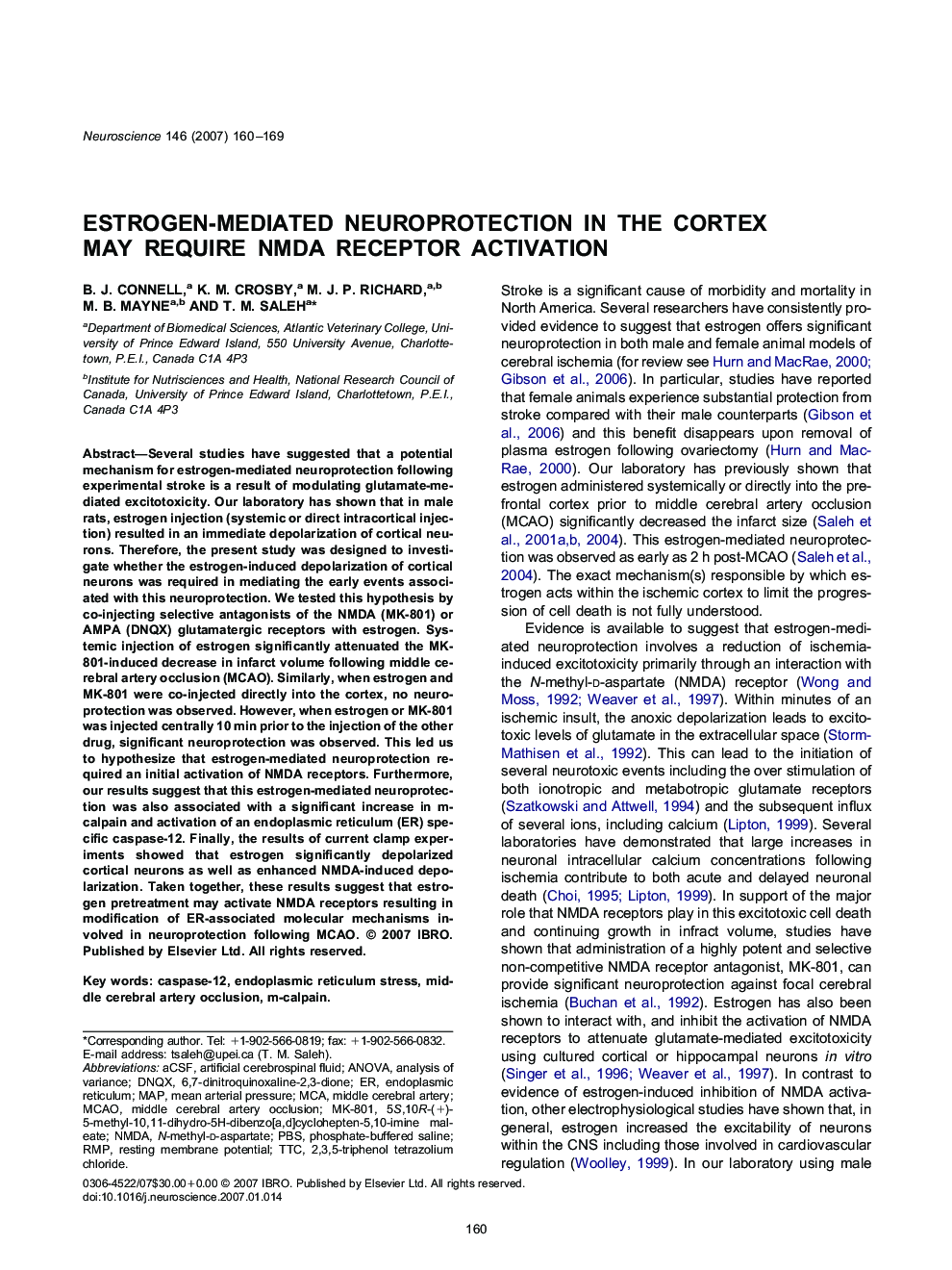| Article ID | Journal | Published Year | Pages | File Type |
|---|---|---|---|---|
| 4340980 | Neuroscience | 2007 | 10 Pages |
Several studies have suggested that a potential mechanism for estrogen-mediated neuroprotection following experimental stroke is a result of modulating glutamate-mediated excitotoxicity. Our laboratory has shown that in male rats, estrogen injection (systemic or direct intracortical injection) resulted in an immediate depolarization of cortical neurons. Therefore, the present study was designed to investigate whether the estrogen-induced depolarization of cortical neurons was required in mediating the early events associated with this neuroprotection. We tested this hypothesis by co-injecting selective antagonists of the NMDA (MK-801) or AMPA (DNQX) glutamatergic receptors with estrogen. Systemic injection of estrogen significantly attenuated the MK-801-induced decrease in infarct volume following middle cerebral artery occlusion (MCAO). Similarly, when estrogen and MK-801 were co-injected directly into the cortex, no neuroprotection was observed. However, when estrogen or MK-801 was injected centrally 10 min prior to the injection of the other drug, significant neuroprotection was observed. This led us to hypothesize that estrogen-mediated neuroprotection required an initial activation of NMDA receptors. Furthermore, our results suggest that this estrogen-mediated neuroprotection was also associated with a significant increase in m-calpain and activation of an endoplasmic reticulum (ER) specific caspase-12. Finally, the results of current clamp experiments showed that estrogen significantly depolarized cortical neurons as well as enhanced NMDA-induced depolarization. Taken together, these results suggest that estrogen pretreatment may activate NMDA receptors resulting in modification of ER-associated molecular mechanisms involved in neuroprotection following MCAO.
